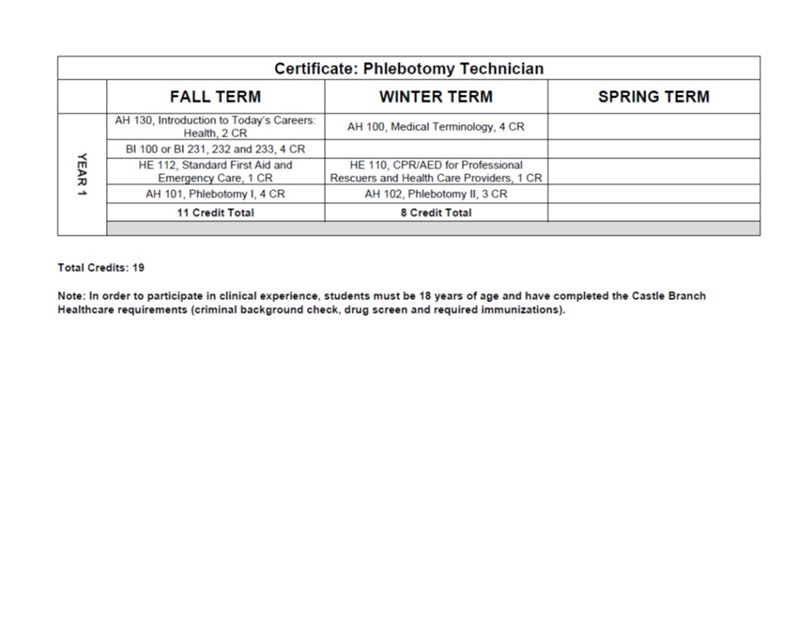Overview
Phlebotomy Technician Certificate
Students learn basic laboratory skills to collect and process high quality specimens for laboratory analysis. Clinical practicum includes 100 clock hours of clinical training in a CLIA-regulated, accredited laboratory with minimum performance of 100 successful, unaided blood collections including venipunctures and skin punctures. Classroom training and clinical practicum prepares students to take the American Society of Clinical Pathologist (ASCP) Phlebotomy Technician certification exam.
Program Overview
This certificate can be earned through credit courses or as a noncredit training certificate, both satisfy the eligibility requirements for the ASCP Phlebotomy certification exam. Curriculum for the program is based on standards and guidelines set by ASCP. Coursework includes anatomy and physiology of the circulatory system, specimen collection, specimen processing and handling, and laboratory operations related to safety, quality, and control. Skills acquired in the program center around the ability to provide the highest standards in discreet and courteous laboratory services for patients, medical providers, and other healthcare workers.
Students who successfully complete this certificate will be able to:
- Perform blood collection by venipuncture and skin puncture to obtain high quality specimens for clinical laboratory analysis.
- Use effective written and oral communication when interacting with patients and other healthcare workers to improve patient care.
- Collect and process blood specimens in a safe manner according to laboratory protocol.
- Discuss patient education and instructions related to specimen collecting for patients with diverse backgrounds, values, and behaviors.
- Individuals will meet eligibility requirements for ASCP national certification.
All healthcare programs at TBCC require a current Healthcare Providers CPR card (and/or HE 110) and for the student to provide verification of certain immunizations and pass a criminal background investigation and drug screen prior to participation in field or clinical rotations. Clinical placements require students to be at least 18 years of age
Program Learning Outcomes
Students who successfully complete this certificate will be able to:
- Perform blood collection by venipuncture and skin puncture to obtain high quality specimens for clinical laboratory analysis.
- Use effective written and oral communication when interacting with patients and other healthcare workers to improve patient care.
- Collect and process blood specimens in a safe manner according to laboratory protocol.
- Discuss patient education and instructions related to specimen collecting for patients with diverse backgrounds, values, and behaviors.
- Individuals will meet eligibility requirements for ASCP national certification.
Example Degree Map
Click for PDF.
